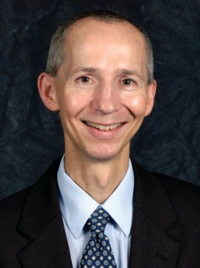Wayne Higgins
AMS is our nation’s premier professional organization promoting the atmospheric, oceanic, and hydrologic sciences. Since joining AMS in 1980, I have relied on the Society to connect with the science, broaden my professional network, and advance my career. In recent years I’ve started to repay the Society, by serving on the AMS Fellows Committee and the AMS Finance Committee, among others. I want our world-class organization to thrive so that it can continue to serve future generations of scientists. To maintain its premier status, I would like to help the society address several key challenges:
Diversity and Inclusion: Many of our organizations are not doing enough to ensure full and equitable participation of a diverse future workforce. AMS has an extremely important role to play in this regard. I can bring my experience at NOAA in building a comprehensive Diversity and Inclusion Program focused on succession planning, training, and professional development to AMS to help address age, gender, ethnic, racial, sexual orientation, and other aspects of this challenge.
Pressing Societal Issues: In the 35 years that I have been a climate scientist, we have witnessed profound changes in our climate. AMS is an essential nonpartisan, trusted organization that serves as an honest broker on the most pressing environmental issues, such as climate change. AMS must continue in this role, now more than ever. I can bring my experience as the director of NOAA’s Climate Program Office and as former director of NOAA’s Climate Prediction Center to AMS to help advance the Society’s policy programs and help ensure that authoritative scientific discourse prevails.
Partnerships and Integration: The rapid pace of technological innovation today, from social media to big data, is opening new pathways for accelerating scientific advancement. This increasingly requires AMS to find new ways to integrate across disciplines in the public, private, and academic sectors. Throughout my career I have worked to advance the climate research enterprise by promoting partnerships that build on mutual strengths and interests. I will bring this experience to AMS and work across the society to help ensure full community engagement in the advances needed to put our information into the hands of those that need it.
If elected to serve, I would like to help AMS address these challenges ultimately to connect people to our science and to grow the membership of the society through outreach, mentoring, and networking.
Wayne Higgins
Dr. Wayne Higgins is director of the Climate Program Office (CPO) within NOAA’s Office of Oceanic and Atmospheric Research. CPO serves as the focal point to advance NOAA’s primary climate mission goal, with more than 70 employees in climate observing, modeling, prediction, education, and societal engagement activities. Higgins received his degrees in physics (B.S., 1980) from the University of Illinois and meteorology (M.S., 1983, and Ph.D., 1987) from The Pennsylvania State University. His research interests span climate variability and change, with emphasis on diagnostic evaluation of models to improve climate prediction. Prior to his appointment as CPO Director, Higgins served as the acting director of the National Centers for Environmental Prediction in 2013 and as the director of the Climate Prediction Center from 2007 to 2013, both within NOAA’s National Weather Service. These experiences gave him a broad perspective on interdisciplinary climate research and applications, ideal for leadership in the expanding role of AMS as an integrator across disciplines.
Higgins is a Fellow of AMS and currently serves on the AMS Fellows Nominations Committee and the AMS Finance Committee. He has also served as a member of the AMS Board on Global Strategies and the AMS Committee on Climate Variations. Higgins has received the NOAA Administrators Award, a NOAA Silver Medal, and two NOAA Bronze Medals for his work. He has spoken at more than 250 national and international conferences and workshops.
Higgins currently serves as the Department of Commerce Principal to the U.S. Global Change Research Program, as the United States Principal to the Global Framework for Climate Services, and as an adjunct professor at the University of Maryland. He conceived and led the North American Monsoon Experiment from 1999 to 2007 and served as chair of the World Climate Research Programme Variability of the American Monsoons Panel and as a member of the U.S. CLIVAR Pan American Panel. He has authored or coauthored more than 80 peer-reviewed journal articles, 5 book chapters, 32 atlases and technical reports, and 200 conference proceedings.
